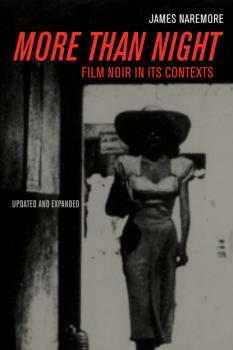James Naremore
Список книг автора James NaremoreMore than Night
"Film noir" evokes memories of stylish, cynical, black-and-white movies from the 1940s and '50s—melodramas about private eyes, femmes fatales, criminal gangs, and lovers on the run. James Naremore's prize-winning book discusses these pictures, but also shows that the central term is more complex and paradoxical than we realize. It treats noir as a term in criticism, as an expression of artistic modernism, as a symptom of Hollywood censorship and politics, as a market strategy, as an evolving style, and as an idea that circulates through all the media. This new and expanded edition of <I>More Than Night </I>contains an additional chapter on film noir in the twenty-first century.
Charles Burnett
In the first book devoted to Charles Burnett, a crucial figure in the history of American cinema often regarded as the most influential member of the L.A. Rebellion group of African American filmmakers, James Naremore provides a close critical study of all Burnett’s major pictures for movies and television, including <I>Killer of Sheep</I>, <I>To Sleep with Anger</I>, <I>The Glass Shield</I>, <I>Nightjohn</I>, <I>The Wedding</I>, <I>Nat Turner: A Troublesome Property</I>, and <I>Warming by the Devil’s Fire</I>. Having accessed new information and rarely seen material, Naremore shows that Burnett’s career has developed against the odds and that his artistry, social criticism, humor, and commitment to what he calls “symbolic knowledge” have given his work enduring value for American culture.
An Invention without a Future
In 1895, Louis Lumière supposedly said that cinema is «an invention without a future.» James Naremore uses this legendary remark as a starting point for a meditation on the so-called death of cinema in the digital age, and as a way of introducing a wide-ranging series of his essays on movies past and present. These essays include discussions of authorship, adaptation, and acting; commentaries on Howard Hawks, Alfred Hitchcock, Orson Welles, Vincente Minnelli, John Huston, and Stanley Kubrick; and reviews of more recent work by non-Hollywood directors Pedro Costa, Abbas Kiarostami, Raúl Ruiz, and Apichatpong Weerasethakul. Important themes recur: the relations between modernity, modernism, and postmodernism; the changing mediascape and death of older technologies; and the need for robust critical writing in an era when print journalism is waning and the humanities are devalued. The book concludes with essays on four major American film critics: James Agee, Manny Farber, Andrew Sarris, and Jonathan Rosenbaum.



